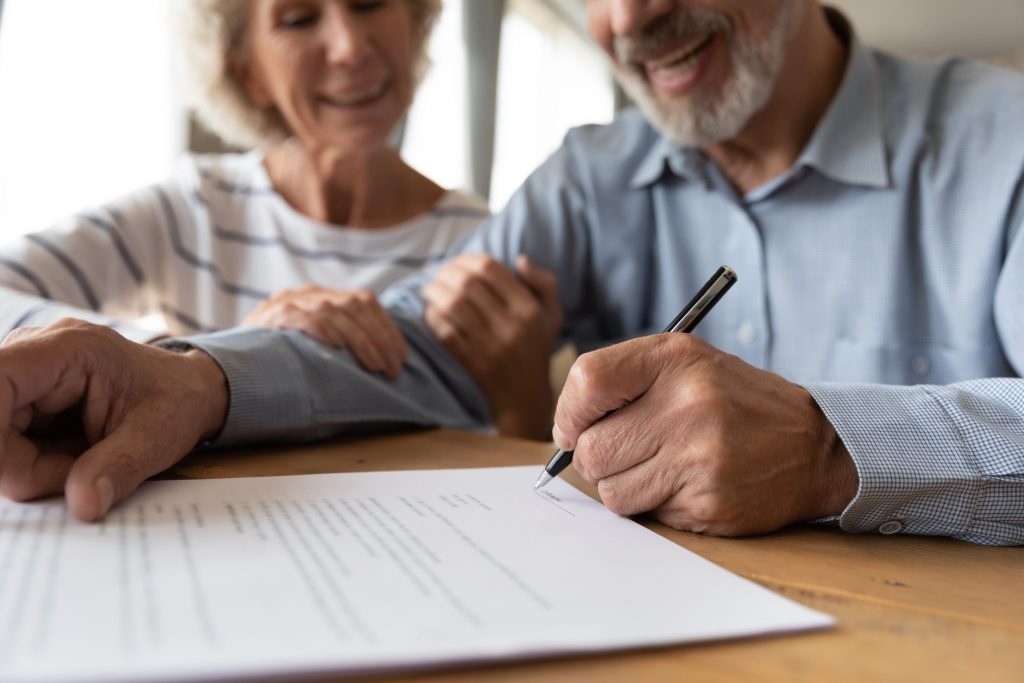As we age, it’s essential to plan for the future and ensure that our wishes are respected even when we might not be able to make decisions for ourselves. One crucial legal document that seniors should consider is an Enduring Power of Attorney (EPOA). In this blog post, we’ll take a look at what an Enduring Power of Attorney is, what it’s used for, when you might need one, who can assist you in obtaining it, and what important considerations you should keep in mind.
What is an Enduring Power of Attorney?
An EPOA is a legal document that allows you (referred to as “the principal” in the document) to appoint a trusted person (called “the attorney” in the document – not to be confused with a lawyer, the “attorney” in this document can be anybody you nominate) to make financial, legal, and personal decisions on your behalf in case you become incapacitated or are unable to make these decisions yourself. This arrangement remains effective even if you lose mental capacity in the future.
In Australia, each state and territory has its own laws governing Enduring Powers of Attorney. In Queensland, the document must be in the prescribed form, and it comes into effect as soon as it is properly signed, witnessed, and dated.

What is an EPOA used for?
The primary purpose of an EPOA is to provide you with peace of mind by ensuring that someone you trust will manage your affairs if you are no longer able to do so. The appointed attorney holds a significant responsibility in handling various aspects of your life, including:
Financial matters: Your attorney can manage your bank accounts and investments, pay bills, and make decisions about your financial affairs.
Legal decisions: Your attorney can make legal decisions on your behalf, such as signing documents and contracts.
Health and personal care: Depending on state laws, an EPOA might include powers related to health and personal care decisions. Check the specific provisions in your state or territory for specific guidance on this matter because it can vary.
When might I need an EPOA?
The need for an EPOA becomes apparent when unexpected events occur, but it’s best to think about these things in advance, so you can make arrangements and have conversations with your loved ones about your wishes.
Life is unpredictable, and accidents or illnesses can strike at any time, potentially leaving us unable to manage our own affairs. Having an EPOA in place ensures that your wishes are honoured and your best interests are safeguarded. Here are some situations when you might need an EPOA:
- Dementia or cognitive decline: If you are diagnosed with dementia or experience a cognitive decline, an EPOA becomes invaluable in managing your financial and personal matters effectively.
- Accidents and injuries: A sudden accident or serious injury may temporarily or permanently incapacitate you, making an EPOA essential for handling your affairs during your recovery.
- Travelling or living abroad: If you frequently travel or reside overseas, appointing an attorney can ensure that your affairs are well-managed even when you are not physically present.
- Peace of mind: Even if you’re currently in good health, creating an EPOA provides peace of mind, knowing that your wishes will be respected if the need arises.

Who can help me get an EPOA?
Obtaining an EPOA requires careful consideration and proper legal guidance. An experienced lawyer who specialises in estate planning can help you to create a comprehensive and legally binding document that aligns with your specific wishes and needs.
You can learn more about Enduring Power of Attorney forms in Queensland by going to the Queensland Government Publications portal. In Victoria, the Enduring Power of Attorney forms are available from the Office of the Public Advocate.
What factors do I need to consider in my EPOA?
When creating your EPOA, there are several key considerations you might want to think about to ensure that your wishes are accurately reflected:
- Choosing the right attorney: Selecting an attorney you can trust is obviously crucial. This person should have your best interests at heart and be capable of making decisions on your behalf. You might choose your partner, if they are in good health, one of your children, a sibling, or even a close friend.
- Specific powers and limitations: Be clear about the powers you grant to your attorney, whether they are limited to specific matters or encompass broader decision-making authority.
- Contingency plans: Consider including provisions for a substitute attorney in case your primary attorney is unable or unwilling to act when the time comes.
- Regular review: Review your EPOA periodically to ensure it remains current and reflective of your wishes, especially if there are significant life events or changes in your relationships. You might want to set a calendar reminder to help you to remember.
An Enduring Power of Attorney is a vital legal tool that can give you peace of mind and security in knowing that your affairs will be managed according to your wishes, even if you’re unable to do so yourself. By consulting with a reputable lawyer, you can create an EPOA that reflects your values, safeguards your interests, and ensures a smooth transition during life’s unpredictable moments.






